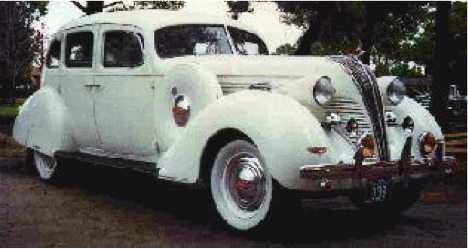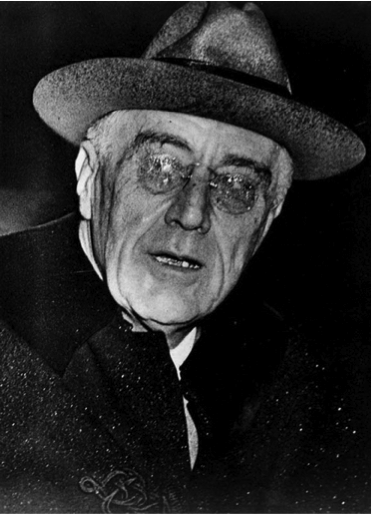A Homecoming: Grief, and New Beginnings in the Spring of 1945
Writer’s note: Mabel Griffith passed away on September 28 at the age of 95. She told me many more stories of her family’s life in Wheeling that I will continue to share, as she would have wanted.
George Griffith pushed the door of the huge old taxicab shut with his foot and heaved his heavy U.S. Army duffel bag on his right shoulder. He looked up the set of steep steps that led to his new home on Wood Street in Wheeling. For him, World War II was over. It was March 1945, the beginning of a spring that would bring victory, grief, and new beginnings for the nation, the city, and the new Griffith/Minns hybrid family.
George’s years of performing cold hard labor and enduring enemy strafing and bombing in the harsh treeless Aleutian Islands counted as enough time served overseas to trigger a discharge. Recent ill health while at Fort Ord in California also played a part. They were mysterious illnesses that the doctors couldn’t quite pinpoint. But, that didn’t stop them from relieving George of his gall bladder and shipping him home for good.
The little frame house he took in with tired eyes that morning was the home he had dreamed of sharing with his new wife, Mabel, and his in-laws, Tom and Lizzie Minns.

All of a sudden, there they were on the little shaded porch. Mabel, teary-eyed and all smiles at the same time as she headed down the steps to see her husband for the second time in four years; Lizzie who stood wearing a well-used apron and brushing the powdery residue of her morning baking from her thin heavily veined hands; and Tom who stood with one hand around Lizzie and the other nervously jingling what sounded like ten dollars’ worth of nickels in his pants pocket.
George bounded up the steps, took Mabel in his arms with a strong long embrace and then finished the last five steps with Mabel in tow to complete the homecoming. He was one of those quiet men who didn’t say much, and when he did it was in soft gentle tones that sometimes made him hard to hear. But he didn’t have to speak today. He just allowed himself to be wrapped in the arms of his family as the four of them stood on the front porch of the little home and soaked in the knowledge that he was home, safe and loved.
Then, they took him inside his new home for the very first time. The house was theirs because of saved Army pay and the dollars he sent home from giving a thousand haircuts aboard ships and inside stark metal Quonset huts in remote military outposts. Tom, Lizzie and Mabel kicked in all their savings too—savings that came from the sale of homemade baked goods, intricate crochet work, pop, cigarettes, newspapers, sandwiches and dozens of other confections. It was the first property any of them had ever owned.
It was really just a little cottage with a wooded hillside in the back and a rambling rosebush out front that would sprout huge red flowers every springtime.
“It’s perfect,” Mabel gushed to George on a rare long-distance phone call to California the day she discovered the home for sale. “It has a front porch, a big living room and dining room, a bedroom upstairs and, a separate bedroom and second kitchen in the very back that we could make all our own. I’d have my own kitchen for the very first time.”
George listened intently and smiled on his end of the connection.
“If you think that’s the right one Mabel, make it happen,” he said.
Six weeks later, the Minns took a big step: they got out of the confectionary business and closed their little store across from the Centre Market for good. Tom’s little business selling household products made by blind people via telemarketing was doing well enough to make the transition. They moved their belongings four blocks northeast to the little Wood Street house. It was a drastic change. For decades, Tom and Lizzie scraped and clawed their way through economic slumps, deadly flu outbreaks, crime sprees, floods, routine illnesses, war, and mine disasters. The couple mentored hundreds of young people, provided gathering places for neighbors, and became well-known entrepreneurs, and icons of perseverance and hard work.
Meanwhile, George now faced the question that thousands of other returning soldiers wrestled with: “what do I do with the rest of my life?” He was certain of one thing: he would not return to barbering. He wanted to be outside.
One Saturday morning George walked up town to the Federal Building on Chapline Street where he joined 20 other young men in taking the civil service exam for work with the postal service. In the coming weeks, he occasionally served as a temporary fill-in letter carrier but was told that there were no full-time openings.

Meanwhile, the Griffith/Minns operation took a calculated gamble that paid off big for Tom’s little business: they bought the family’s first car, a 1937 Hudson. It was weather-beaten, smoky, and noisy and had bad tires, but it provided freedom that Tom, Lizzy and Mabel never had before. But mainly, it meant that Tom could begin calling far-flung Wheeling neighborhoods like Warwood, Woodsdale and Elm Grove to sell his wares because now they could deliver to customers by automobile.
George devoted the days he wasn’t working for the postal service to helping Tom with deliveries. On delivery days, George loaded up the trunk of the Hudson with brooms, mops and other items that Tom had sold over the telephone. George was the driver/delivery man; Mabel was the navigator, change-maker, and keeper of the delivery records; and Tom, who insisted on going along on every delivery mission, sat in the back seat anxious to meet any customers who might have a question or wish to trade news and gossip. Lizzie always stayed home and prepared dinner.
The news on the war in Europe was all good and there was mounting excitement over the possibility that it would end soon, although the war in the Pacific seemed to drag on.
On Thursday, April 12, 1945 George loaded up the Hudson. Tom and Mabel climbed aboard and they began deliveries in Woodsdale section of Wheeling. It was around dinnertime when George pressed the doorbell of a house on Poplar Avenue. A woman answered and invited George inside while she went to get her purse to pay for the new broom he held in his hand. A radio was playing loudly. George recognized the show. It was “The Wilderness Road” on the CBS radio network.
Suddenly, he recognized the voice of veteran newsman John Daily—the same announcer who broke the news of Pearl Harbor four years earlier.
“We interrupt this program to bring you a special news bulletin from CBS News,” Daily said excitedly. “A press association has just announced that President Roosevelt is dead. The President died of a cerebral hemorrhage. All we know so far is that the President died at Warm Springs in Georgia.”
George felt his knees go weak. He leaded against the front door frame and tried to absorb the news. The woman thrust money in his hand without saying a word. She was pale. George hurried back to the Hudson and broke the news to Mabel and Tom. Mabel began to sob. Tom was stunned.

“I think we’ve had enough for today George,” he said softly. “Let’s go home. Lizzie will be upset.”
They found her rocking slowly in her chair in the dining room where the radio was tuned to WWVA for news about the President’s death.
“I remember when Mr. Roosevelt came to Wheeling,” Lizzie said softly. “It was in 1932 Tom. Remember? He was running for President the first time. He spoke over at the stadium on Wheeling Island and then again from an open balcony at the McLure Hotel. Mabel took us up to hear him. There were so many people jamming 12th and Market Streets that we could hardly get through.”
Tom, Mabel and George took seats around the dining room table.
“I remember the newspapers talking about when he met a group of coal miners out near S Bridge in Elm Grove,” Mabel recalled. “They took a picture of him that they say was one of his favorite pictures from the campaign. In the picture, he was shaking hands with a miner who was covered in coal dust and President Roosevelt held the miner’s little boy in his lap.”
The sound of church bells drifted up toward the Wood Street house from the many prayer services that were convening at worship sites blocks away in Center Wheeling.
Suddenly, Wheeling City Manager Robert Plummer’s voice came through the radio and he delivered a solemn tribute.
“Throughout these trying years of war in which he now becomes a casualty as truly as a man on the field of battle, he has labored mightily in delivering us within sight of victory and peace,” Plummer said. “He has left us a high heritage of courage and devotion to duty. Throughout the world the crashing echoes of freedom’s coming victory and the singing hearts of millions of liberated people make his requiem.”
Another tribute followed from Wheeling Mayor Russel Goodwin who also announced that all business activity in the city would suspend during the hour of the President’s funeral on Saturday. He said all flags would be at half-mast.
WWVA reported that telephone service in the city had been disrupted in the hours after the death announcement because of the volume of calls placed by alarmed residents who spread the word of the President’s death.
“We will not see the likes of Franklin Roosevelt again,” Tom said softly after blowing his nose in his well-used handkerchief. “May God bless Mr. Truman. He has big shoes to fill.”


